102 | Ocean Wine: Unsafe or Just Weird?
Plus a magic wand for hepatitis A, and adding allergens on purpose (dumb)
This is The Rotten Apple, an inside view of food integrity for professionals, policy-makers and purveyors. Subscribe for weekly insights, latest news and emerging trends in food safety, food authenticity and sustainable supply chains.
Training recording and e-book out now
Bill Marler’s magic wand (let’s banish Hep A)
From the Duh Files: putting allergenic proteins into plant foods is dumb
Is ocean wine unsafe or ….?
Food fraud news and incidents
🎧 Listen Now (for paying subscribers) 🎧
Hi everyone,
This week’s newsletter has some doozies! Five men have been sentenced to life imprisonment for food fraud (life! – imagine if that rule applied everywhere in the world).
The law has also caught up with people connected to the cough syrup scandal which killed hundreds of children last year. I wrote about the fraudulent adulteration which is believed to have caused the deaths in Issue 75.
My favourite story from today is about a couple of Californian bros who were doing some really weird things with wine. They’ve faced law officers too.
Also this week: a deep dive into hepatitis A, a nasty foodborne illness which can cause permanent liver damage and, as usual, food safety news and food fraud news from the past week.
Karen
P.S. Big shout out to 👏 Concetta, Muhammed, Lynette, Creed, Teresa, Mia, Javier and Kristine ♥ 👏 for signing up, and thank you to Vicki for your ongoing support. Your subscriptions allow me to keep providing independent, ad-free food safety information to our global community ♥
Training Session Recording
Just published: A recording of last week’s food safety culture training event, for paying subscribers. If you showed up for the live session, you won’t be surprised to hear I am ditching YouTube for the next event ☺, get in touch if you had trouble viewing live and I’ll make it up to you.
🍏 Food Safety Culture - Best Practices and Resources (60 minute video)
+ Printable Issues!
Twice a year my lovely assistant Jane creates an e-book with back issues of the newsletter for you to download and keep. Each e-book is searchable and contains live links so you can click through to sources.
🍏 The latest e-book with Issues 76 to 100 is out now.
Hepatitis A | Impacts and Prevention
Banishing hepatitis A once and for all
Bill Marler is a man on a food safety mission. As a lawyer who litigates in food poisoning cases in the US he gets to meet many victims of foodborne illness and is a passionate advocate for prevention.
In a recent blog post, Mr Marler shared the devastating toll of a foodborne illness outbreak caused by hepatitis A, describing how one infected food worker passed the disease on to nearly fifty people, “hospitalizing most, killing four and causing two liver transplants”.
Hepatitis A, it’s not that serious (right?!)
When health services talk about hepatitis A they often use language that implies it is not a particularly serious disease. Maybe they are comparing it to hepatitis B and C which have high rates of serious long-term complications.
Bill’s blog post mentions two liver transplants and four deaths from fifty recent infections. That sounds pretty serious to me!
Here’s what NHS Inform, a UK government health service, says about hepatitis A:
“There's currently no cure for hepatitis A, but it will normally pass on its own within a couple of months. You can usually look after yourself at home. While you're ill, it's a good idea to get plenty of rest, take painkillers such as paracetamol (tylenol) or ibuprofen… and maintain a cool, well-ventilated environment....”
NHS Inform also says that serious complications occur in only one of every two hundred and fifty infections (less than one percent).
Mr Marler’s clients experienced serious complications/death at a rate of twelve percent; thirty times higher than the figures quoted by NHS Inform. Rates of hepatitis A infection have been increasing in the US since 2016.
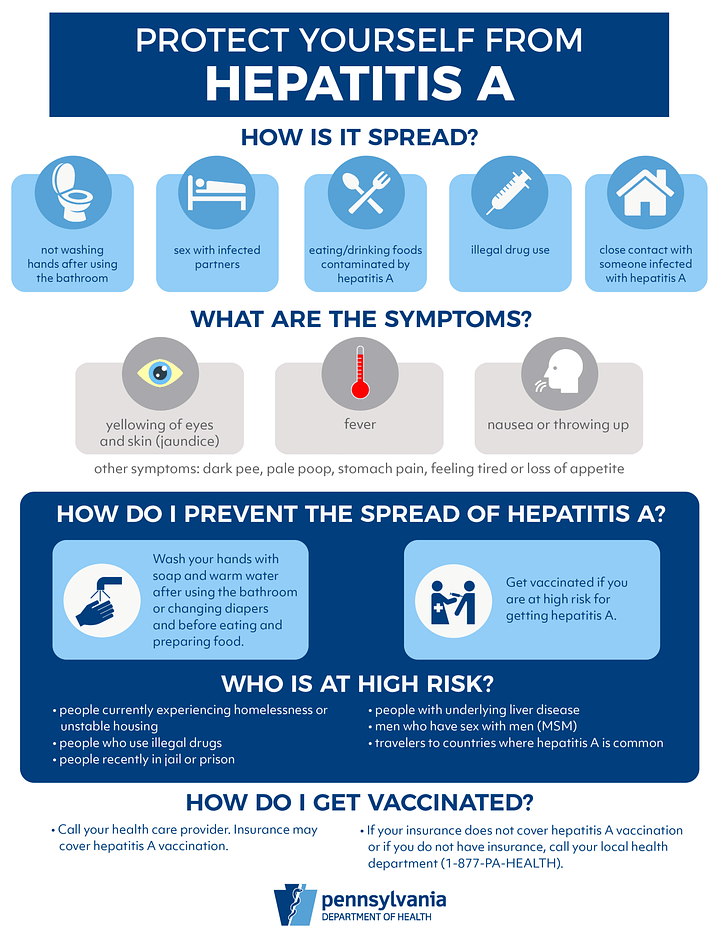
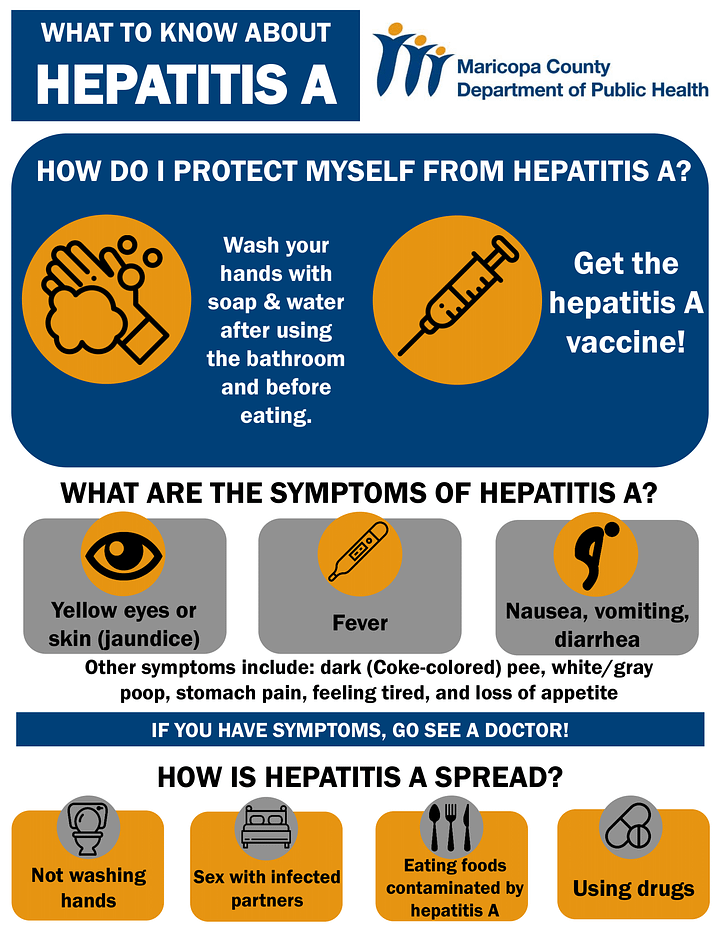
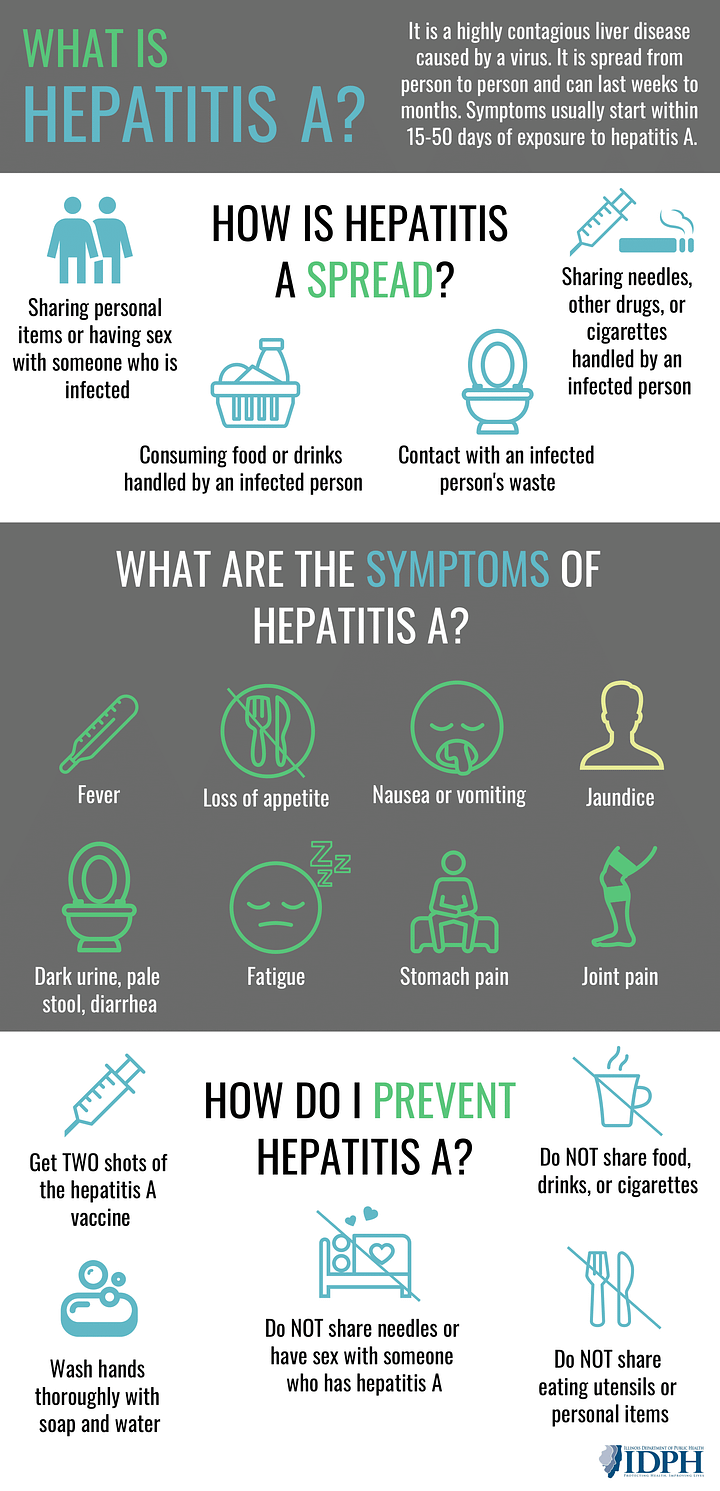
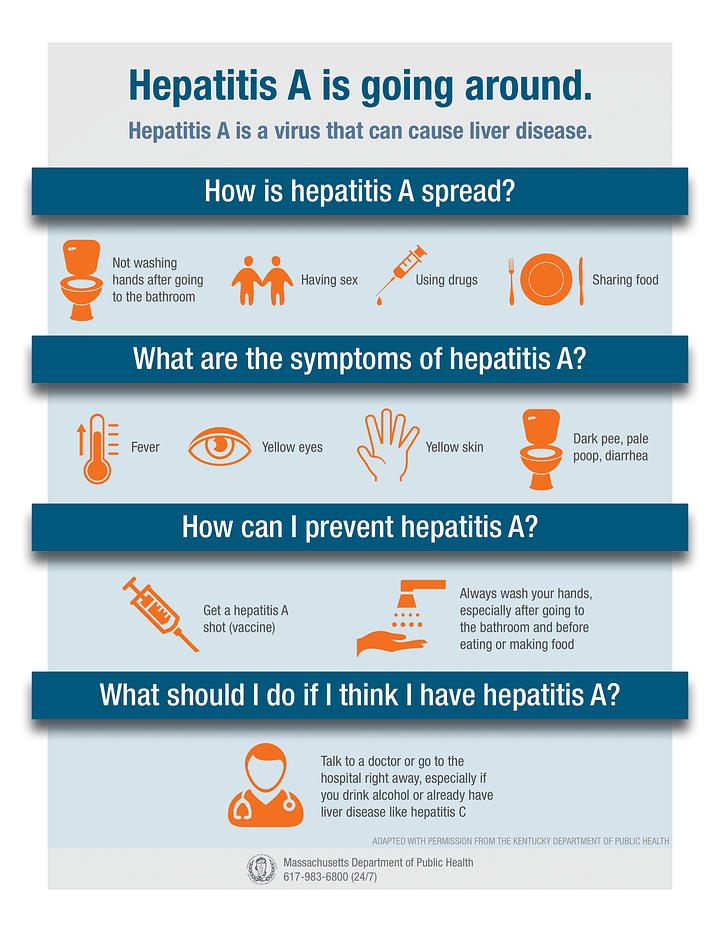
The impacts of hep A infections (my family’s experience)
No matter what the rate of serious complications, any foodborne illness with symptoms lasting for two months on average (two months!) is awful for the victims and their families.
My father had hepatitis A when I was a child. He was bedridden and bright yellow for weeks, even his eyeballs were yellow; four-year-old me found it scary. Plus, he smelt funny.
With him unable to work for so many weeks, we could have faced dire consequences as a family who relied on his wages. Fortunately, we were protected by Australia’s legally-enshrined sick leave policies which meant he continued to get paid while he was at home recovering.
Not coincidentally, Dad caught hepatitis A while travelling in the USA, a country where most food workers don’t have protections when they are sick - if they don’t turn up, they don’t get paid. This increases the likelihood of infected workers passing their illness on to customers.
There’s a vaccine already (no magic wand needed)
Hepatitis A is one of the few foodborne illnesses that can be vaccinated against. It blows me away that we don’t routinely vaccinate everyone in all wealthy countries.
But we don’t. The UK National Health Service says they don’t offer free vaccines for everyone “because the risk of infection is low for most people”. The Australian government says the same thing.
Bill Marler says his top priority, the number one thing he would do if he got a ‘Food Safety Magic Wand’, is to make it legally mandated for all food workers to be vaccinated against hepatitis A.
A vaccine mandate would immediately cut out all outbreaks caused by food-service workers. Outbreaks like one in Virginia (USA) in 2021 - 2022 which started in a local restaurant, when an infected food handler worked with symptoms. The outbreak then spread from infected dinners to 98 other people in the community, through person-to-person contact.
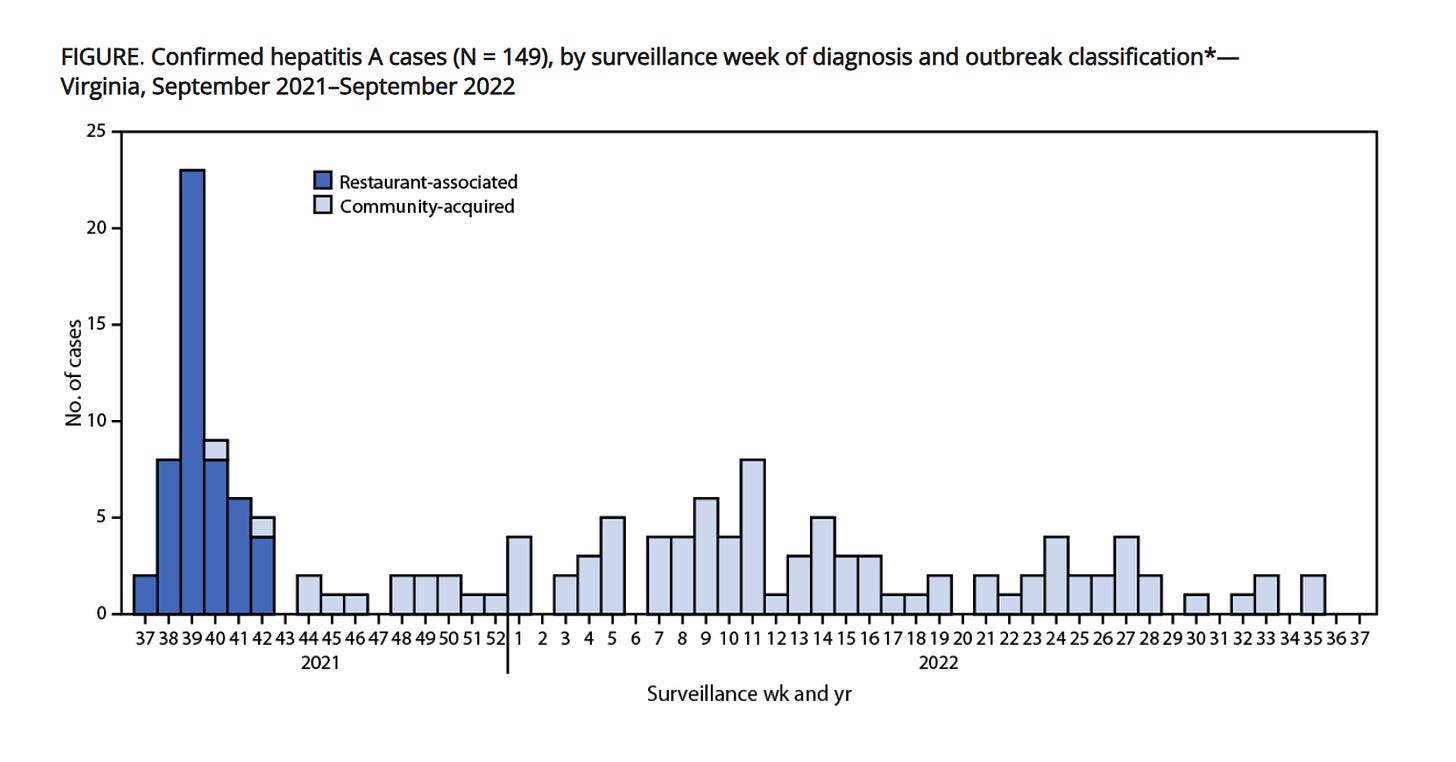
Authorities estimate that the financial cost of the Virginia outbreak exceeded US$3 million in direct costs of hospitalisations and vaccines that were subsequently offered to high-risk people in the surrounding areas. The cost of lost wages (and legal fees!) was not included in the estimate (source).
That’s $3 million from one sick food handler who didn’t wash his hands properly after using the toilet.
It reminds me of how a sick worker in a frozen berry factory in China caused 11,000 people to get norovirus when the berries were served raw in Europe (read more about that here), and ties in nicely to last week’s food safety culture talk where I talked about how every individual in a food company can have an impact on food safety.
Is a vaccine the answer?
So is a mandatory hep A vaccination the answer? The US government included it in the routine child vaccination schedule in 2006, so they obviously think it will help.
In my country (Australia) we have had hepatitis A outbreaks from imported food like dates, and frozen raspberries. Vaccination would only prevent those types of outbreaks if people in other countries were vaccinated, as well as Australians.
Forcing food workers to be compulsorily vaccinated would be problematic in practice, but I agree with Mr Marler in principle that hep A vaccines are an ‘easy’ win for food safety. The outcomes of an outbreak are so bad, and the prevention (vaccination) is so simple that it’s hard to see the downsides to this ‘low-hanging fruit’ food safety initiative.
How to protect yourself and your customers from hep A
Hepatitis A is spread via the faecal-oral route, which means infected people who do not wash their hands properly can spread the disease to others.
The infective agent is a virus which is inactivated by cooking but not by freezing or freeze-drying.
To prevent hep A outbreaks from affecting you and your customers,
have a ‘stay away if sick’ policy for food workers, educate them on the symptoms of foodborne illnesses including hep A, and make sure they feel confident to stay home if affected;
wash hands, wash hands, wash hands: make it a habit for everyone and enforce it at work and at home;
reconsider the use of imported frozen berries in raw foods like smoothies or cold desserts;
consider vaccinations for yourself and your family (a must if you travel or live in a developing country).
In short: 🍏 Hepatitis A is foodborne illness 🍏 There is a vaccine against hepatitis A 🍏 Many countries do not routinely vaccinate against hep A 🍏 One infected food handler can spread the disease to hundreds of people, resulting in serious health outcomes and large economic costs 🍏 Prevention for hep A: vaccinating food handlers; high-quality hand-washing protocols and compliance; cooking raw foods from developing countries before serving or eating 🍏
Main Sources (secondary sources are referenced using in-text hyperlinks):
Bill Marler’s blog post What would I do with a Food Safety Magic Wand?
Helmick, M.J. (2023). Widespread Community Transmission of Hepatitis A Virus Following an Outbreak at a Local Restaurant — Virginia, September 2021–September 2022. MMWR. Morbidity and Mortality Weekly Report, [online] 72. doi:https://doi.org/10.15585/mmwr.mm7214a2.
Learn more: 🍏 WHO Fact Sheet on Hepatitis A 🍏 Lessons Learned from a Hepatitis A Outbreak (The Rotten Apple, issue 67) 🍏
(Duh) Putting allergenic proteins into plant foods is a bad idea
Food startups in the USA are developing genetically modified food plants that incorporate proteins from other food organisms. These include proteins such as milk, egg, and (no joke) tree nuts.
To a food safety professional, this is insane. To a food startup, it’s a hype-worthy money-making idea.
One start-up developed a genetically modified soybean which contained brazil nut proteins to improve its nutritional qualities. After (perhaps) years of work, someone pointed out to them that brazil nut proteins are a pretty serious food safety hazard, one that would be hard to control if the GMO soy went wild, and they voluntarily discontinued its development (phew).
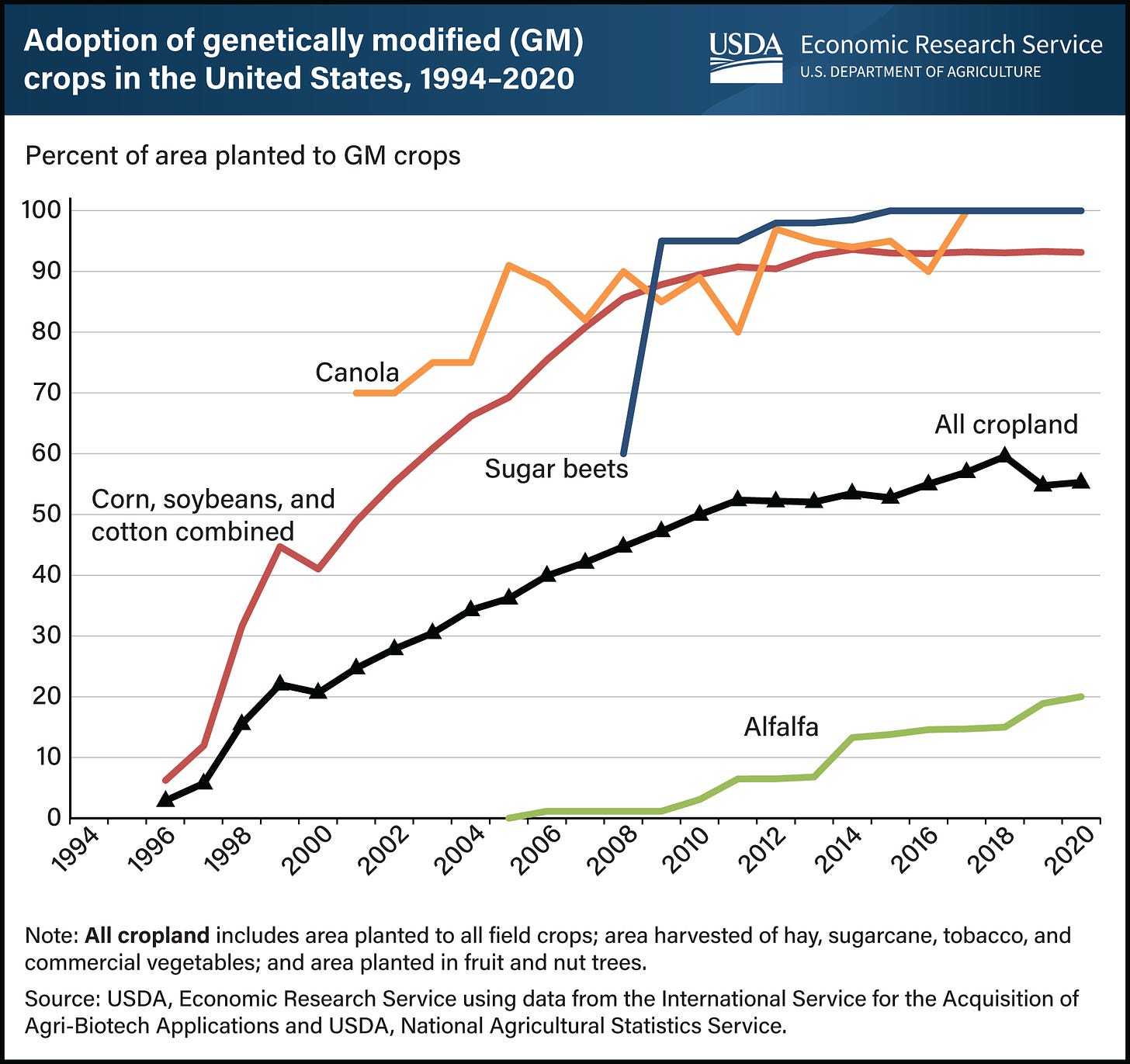
The FDA has written an open letter to food start-ups who are engaging in plant food genetic modification - which some commentators call ‘Molecular Farming’ - saying they should consider allergen risks and reminding them that foods need to be properly labelled “when intentionally part of the food supply”, whatever that means.
In the letter, the FDA also encourages plant developers to make use of their voluntary premarket consultation program.
Source: https://allergenbureau.net/molecular-farming-brings-new-concerns-for-allergen-management/
Food Safety News and Resources
21st August | Food Safety News and Free Resources | High PFAS in organic kale | Recalls due to unauthorised irradiation | Tropane alkaloids in foods (safety alert) | Fruit harvesting machines – a resource | Cough syrup scandal: accused face court | Salmonella
Ocean Wine: Unsafe or Just Silly?
A Californian startup that aged bottles of wine in the ocean has been accused of illegally discharging material into US water, selling alcohol without a license and aiding and abetting investor fraud. Prosecutors also allege that the company’s founders sank crates of wine to the seafloor one mile out to sea without obtaining environmental permits.
The company’s marketing material claims that the sea floor is the perfect place to age wine because the environment there is free from oxygen and light. After ageing, the bottles of wine were encrusted with marine life and sold for $500 each.
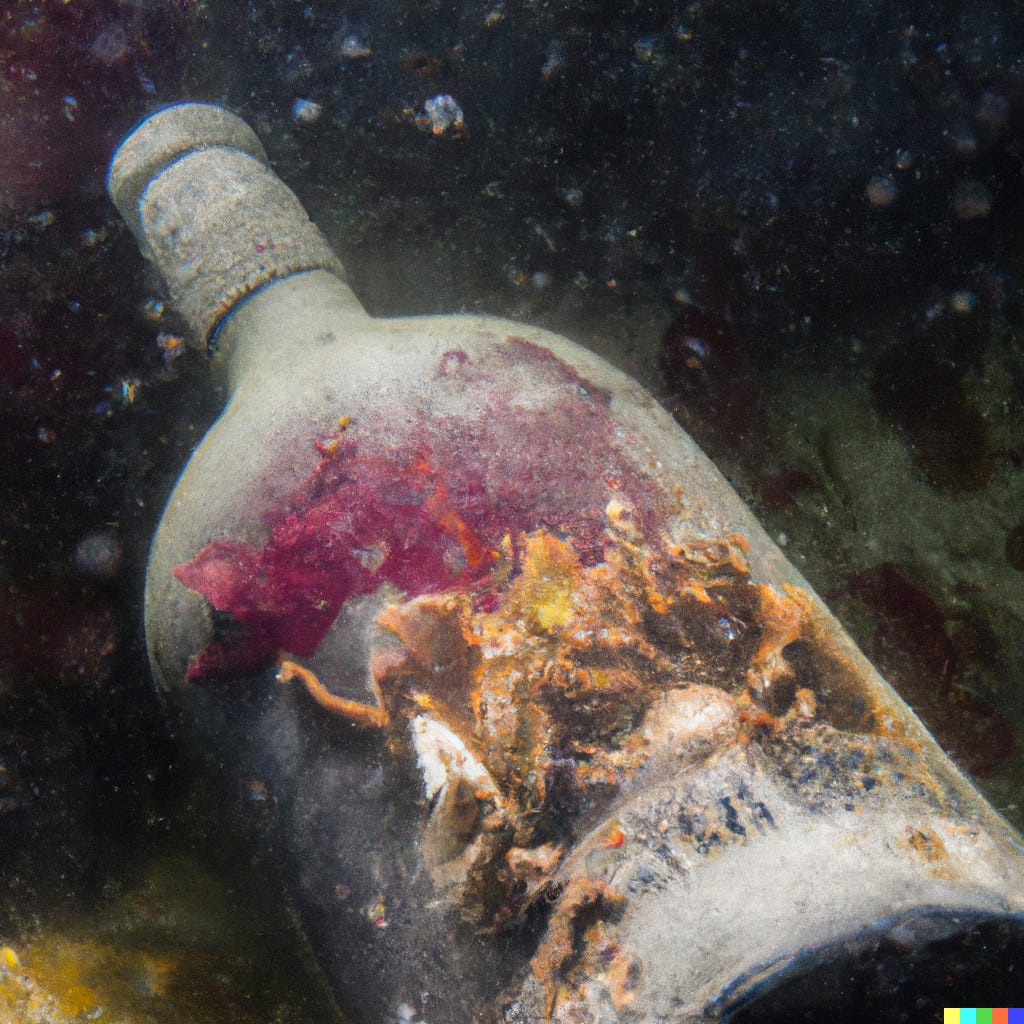
The pseudo-science of ocean wine
“The galvanic current produced by our specialty deigned [sic] cages and the salt slowly ionizes the wine splitting the tannins and enhancing the wine. By utilizing a natural electrolysis we are able to break up the molecules inside the bottles and allow them to blend more completely with the alcohol.” (https://www.oceanfathoms.com/wine)
Okayyyyyy.
The wine did not carry federally approved labels and the company was not paying sales tax. Questions have also been raised about whether marketing material that stated a portion of profits would be donated to an environmental charity was false.
A media report about enforcement action against the startup’s founders claimed that the FDA states the ocean ageing process is unsafe : “aging wine in a way that bottle seals have contact with sea or ocean waters may render these wines adulterated under the FD&C Act in that they have been held under unsanitary conditions whereby they may have become contaminated with filth or may have been rendered injurious to health.”
Extra tasty?
Ocean-aged wine is a legitimate niche in winemaking in Europe, where regulators are not concerned about the safety of the ageing process. Wineries that practice ocean-aging and lake-aging claim the product tastes better than equivalent land-aged wines. Read more about that here and here.
Main source: https://www.mensjournal.com/news/california-wine-company-illegal-ocean-fermenting
What you missed in last week’s email
· Dark kitchens - why food safety experts are worried
· A review of Food Standards Scotland’s new food crime prevention tool
· Meat sustainability versus plant-based alternatives
· Food fraud news, emerging issues (horizon scanning) and incidents
Below for paying subscribers: Food fraud news and incident reports (audio 🎧 is now at the top of the page)
📌 Food Fraud News 📌
Food fraud men sentenced to life in prison
Five men have been sentenced to life in prison. The accused were caught making





